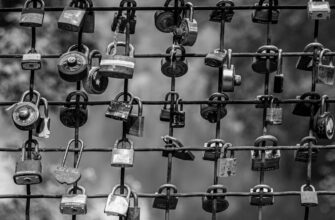- Introduction: Why Bitcoin Safety Matters
- Choose a Reputable Cryptocurrency Exchange
- Secure Your Exchange Account
- Complete Identity Verification Safely (KYC)
- Fund Your Account Securely
- Execute Your Bitcoin Purchase
- Transfer to a Private Wallet Immediately
- Maintain Ongoing Security Habits
- Frequently Asked Questions (FAQ)
- Is buying Bitcoin legal?
- Can I buy Bitcoin anonymously?
- What’s the minimum amount I can buy?
- How do I spot Bitcoin scams?
- Should I insure my Bitcoin?
- What if an exchange gets hacked?
- Conclusion: Safety First, Always
Introduction: Why Bitcoin Safety Matters
Bitcoin, the pioneering cryptocurrency, offers exciting investment opportunities but comes with significant security risks. With rising cyber threats and exchange hacks, learning how to safely buy Bitcoin isn’t optional—it’s essential. This guide walks you through proven security practices, from choosing platforms to storage solutions, ensuring your first crypto purchase remains secure. Follow these steps to minimize risks while entering the digital currency space.
Choose a Reputable Cryptocurrency Exchange
Your exchange is your gateway to Bitcoin—selecting a trustworthy platform is critical. Prioritize these features:
- Regulatory Compliance: Opt for exchanges registered with financial authorities like FinCEN (US) or FCA (UK)
- Security Protocols: Look for cold storage (offline funds), SSL encryption, and insurance coverage
- User Reviews: Check independent sites like Trustpilot for red flags
- Transparent Fees: Avoid platforms with hidden charges
Top-rated options include Coinbase, Kraken, and Gemini, but always verify current security measures before signing up.
Secure Your Exchange Account
Once registered, fortify your account immediately:
- Create a strong, unique password (12+ characters with symbols/numbers)
- Enable two-factor authentication (2FA) using Google Authenticator or Authy—never SMS
- Use a dedicated email with 2FA that isn’t linked to other sensitive accounts
- Whitelist withdrawal addresses to prevent unauthorized transfers
Complete Identity Verification Safely (KYC)
Exchanges require Know Your Customer (KYC) checks. Protect your data during this process:
- Upload documents directly through the exchange’s secured portal—never email sensitive IDs
- Verify the website’s authenticity (check for HTTPS and correct domain spelling)
- Use encrypted internet connections; avoid public Wi-Fi
- Monitor credit reports afterward for suspicious activity
Fund Your Account Securely
Deposit fiat currency using low-risk methods:
- Bank Transfers (ACH/Wire): Most secure but slower (1-3 days)
- Debit Cards: Faster but higher fees; ensure card has fraud protection
- Avoid Credit Cards: High interest and potential debt risks
Never share banking credentials directly with exchanges—use official linked accounts only.
Execute Your Bitcoin Purchase
When buying Bitcoin:
- Start with small test transactions to verify the process
- Use limit orders to control purchase prices instead of market orders
- Double-check wallet addresses before confirming transactions
- Review transaction fees to avoid overpaying
Transfer to a Private Wallet Immediately
Never store large amounts on exchanges. Move Bitcoin to a secure wallet:
- Hardware Wallets (e.g., Ledger, Trezor): Most secure—offline storage
- Software Wallets (e.g., Exodus, Electrum): Convenient but require rigorous device security
- Paper Wallets: Cold storage option for advanced users
After transfer, verify receipt on the blockchain via your wallet’s transaction ID.
Maintain Ongoing Security Habits
Sustained vigilance prevents future risks:
- Update software/wallet firmware regularly
- Never share private keys or recovery phrases—store them offline
- Beware of phishing emails mimicking exchanges
- Use multi-signature wallets for large holdings
- Monitor transactions via blockchain explorers
Frequently Asked Questions (FAQ)
Is buying Bitcoin legal?
Yes, in most countries, but regulations vary. Always check local laws before purchasing.
Can I buy Bitcoin anonymously?
Fully anonymous purchases are nearly impossible due to KYC requirements on regulated exchanges. Peer-to-peer platforms offer more privacy but carry higher fraud risks.
What’s the minimum amount I can buy?
You can purchase fractional Bitcoin (as little as $5-$10 on platforms like Cash App or Coinbase), making it accessible for beginners.
How do I spot Bitcoin scams?
Red flags include guaranteed returns, unsolicited “investment” offers, fake exchange URLs, and requests for private keys. Verify all contacts through official channels.
Should I insure my Bitcoin?
Some custodial services offer insurance, but self-custodied Bitcoin isn’t insurable. Use hardware wallets and secure backups as primary protection.
What if an exchange gets hacked?
Reputable exchanges typically reimburse users if hacks occur due to platform vulnerabilities. However, funds lost through compromised personal accounts (e.g., weak passwords) aren’t covered.
Conclusion: Safety First, Always
Buying Bitcoin safely hinges on disciplined habits: vetting exchanges, securing accounts, using private wallets, and staying alert to threats. By following this guide, you transform risk into empowerment. Start small, prioritize security over convenience, and welcome to the future of finance—safely.








